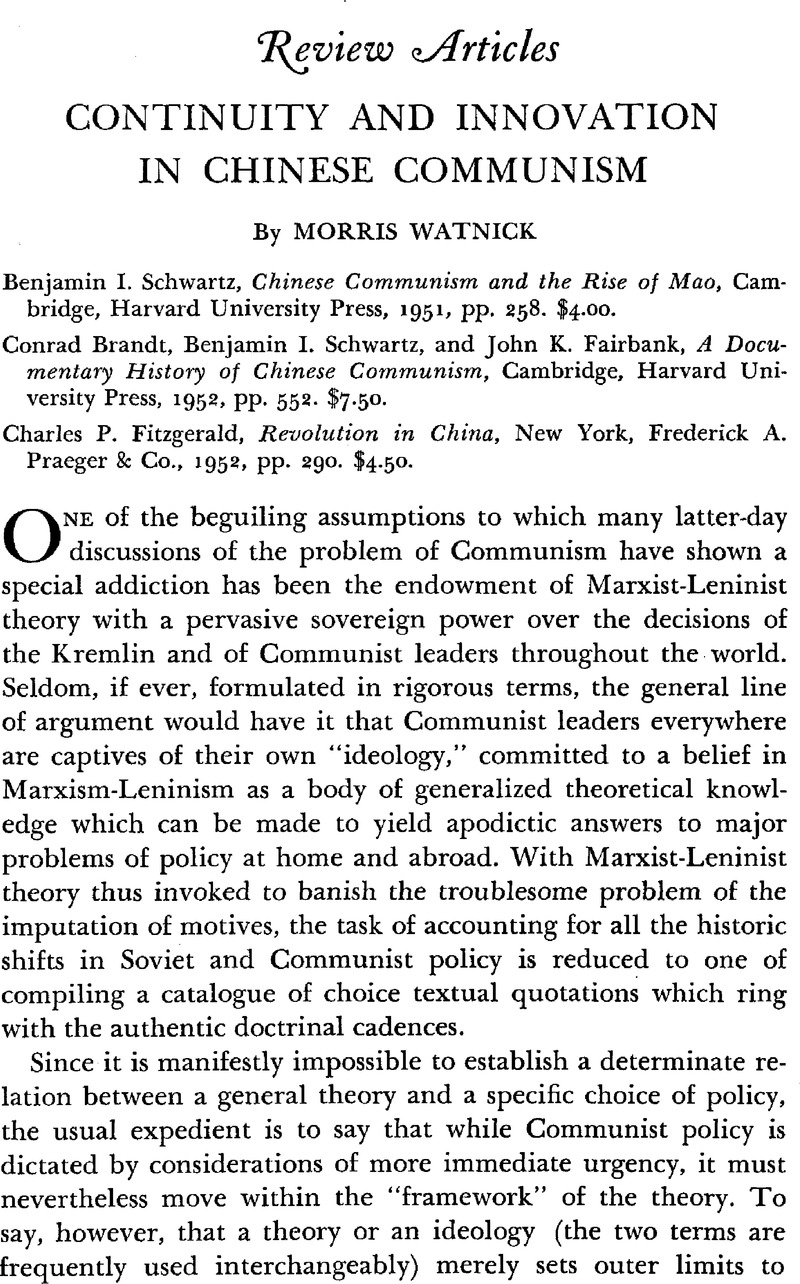Published online by Cambridge University Press: 18 July 2011

1 Clearly, the answer to this question does not depend on the historical judgment as to whether or not Mao was the originator of this strategy, for historical priority is not necessarily an indication of a doctrinal deviation. If it could be established that his strategy merely applied in practice what is in any case entailed in the structure of Leninism (unlimited flexibility as a maxim of strategy), he would then emerge as a better Leninist than those less adept in translating Leninist principles into practice.
2 Lukacs, Georg, Geschichte und Klassenbewusstsein, Berlin, 1923, pp. 52–54, 63, 264–74.Google Scholar For an illuminating discussion of this and related matters, see Heimann, Eduard, “Marxism and Underdeveloped Areas,” Social Research, XIX (September 1952), pp. 328–45.Google Scholar